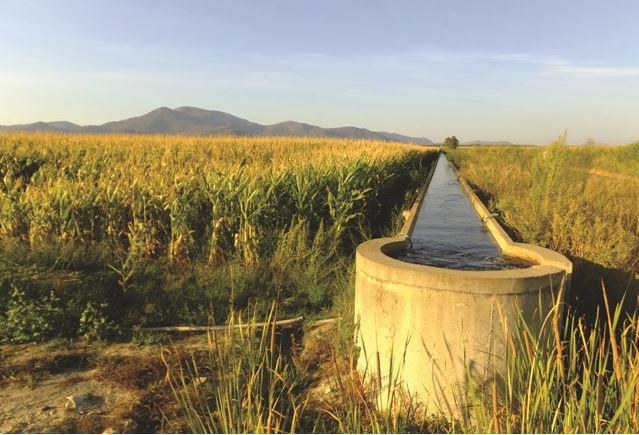Interview with Jos Luis Romeo, President of the Corn Producers Association of Spain, and member of the Global Farmer Network. Translated to English from the original Spanish the interview appeared at in Extremadura21 on July 10, 2019.
Jos Luis Romeo (Corn Producers Association of Spain): Spain can obtain the highest yields in corn per hectare of Europe by sun and heat
The cultivation of corn remains the most important in the number of hectares in the Extremadura irrigation, with almost 55,000, 21% of the total cultivated. With an average production of 550,000 tons in the last campaigns, the arrival of other crops such as superintensive olive groves or almonds threaten to reduce their extension. An Iberian congress of Spain and Portugal on corn, has put the keys on the challenges and problems that the sector has.

Question: Is corn cultivation in Spain and Portugal different from other markets?
Answer: In the Iberian Peninsula, corn producers have different characteristics to other European countries. At the agronomic level, our varieties are longer cycles because our latitude is lower, as we also have different weeds and fungi. And we cannot forget that the effects of climate change are the most pronounced on the peninsula.
Question: How can the competitiveness of corn production be increased in the countries of southern Europe?
Answer: Competitiveness in corn production must be considered worldwide. Europe is a net importer of corn and especially Spain. That is why improving our productions should be an important objective for our governments. However, we compete against countries that have much less restrictions than we do when it comes to producing.
I mean that we compete against countries that have neither the limitations in force in Europe when using phytosanitary products, nor the established restrictions on biotechnology in agriculture. Genetically modified corn to be more efficient in the consumption of nitrogen, or of water, or in the saving of phytosanitary products already exists in the American countries and these plants are more competitive than ours and, in addition, as they make more use Resource efficient, they are also more environmentally sustainable.
Competitiveness in agriculture will necessarily go through biotechnology. And now the door to transgenics is closed, we should not let Europe repeat this disaster again with gene editing technology or CRISPR-CAS.
Question: What strategy should we follow for the valorization of Iberian corn?
Answer: In the Iberian Peninsula, by having more hours of sunshine and more heat, we can obtain the highest yields in corn per hectare in Europe. In both Spain and Portugal we have obtained yields higher than 20 tons / Ha. But also in the northern countries, because they are more humid, they have more problems with the appearance of fungi in corn that in some cases give rise to high levels of mycotoxins.
The warm and sometimes windy climate of our peninsula means that we do not have so many problems with fungi and that, in general, our maize is of higher quality. That is why in the Iberian Peninsula, the demand for maize for human consumption is increasing due to the high quality that our productions usually have.
Question: Does the proposal to reform the Common Agricultural Policy after 2020 serve the interests of corn producers?

Answer: I think the proposal that is now is a draft that will move far away from what results in the end. Now European elections are coming and the new parliament must restart the study of the draft CAP. And other problems such as Brexit or EU – USA relations will also condition the new CAP that is not expected until 2023. I think there are some important general ideas that should be taken into account in the future CAP. If we want farmers not to disappear and the countryside is populated, the first thing is that economically it does not get worse every day. Therefore, the part intended for direct aid (first pillar) should not be cut.

